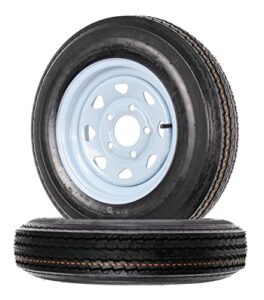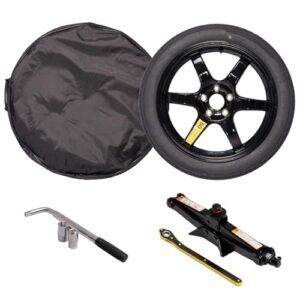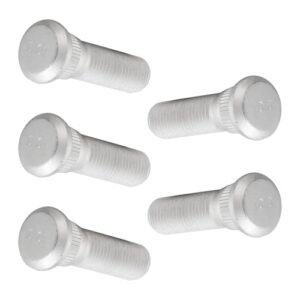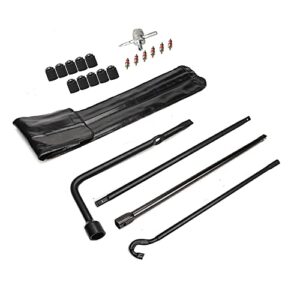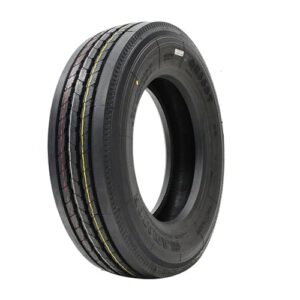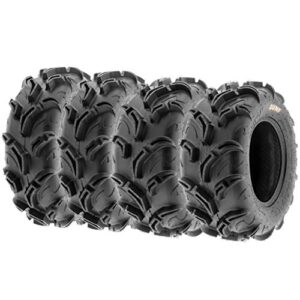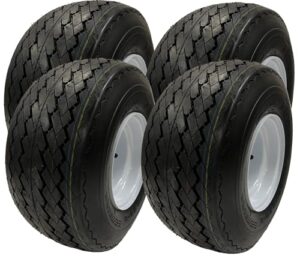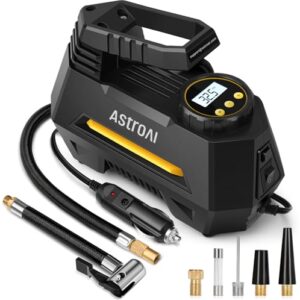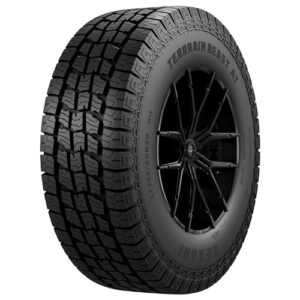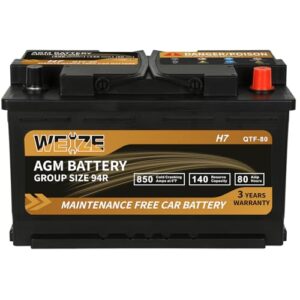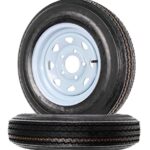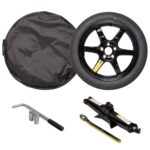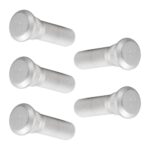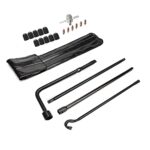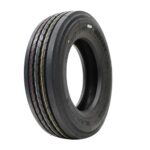The best budget all-season tires offer a blend of performance, durability, and affordability. Brands like Cooper, Hankook, and Milestar lead this category with their value-driven models.
Selecting the best all-season tires for your vehicle shouldn’t mean compromising on quality or breaking the bank. Drivers seek tires that provide safety, comfort, and efficiency across various driving conditions, and the market responds with numerous options that won’t strain your wallet.
Noteworthy brands have honed their rubber compounds and tread designs, ensuring that their budget-friendly offerings still meet rigorous performance standards. These budget all-season tires are praised for their reliable grip, respectable tread life, and commendable handling in diverse weather conditions. By choosing one of these cost-effective options, motorists can enjoy peace of mind on the road throughout the year without sacrificing performance or safety.

Introduction To All-season Tires
Welcome to the world of All-Season Tires, the tire industry’s Swiss Army knife. These marvels provide a comfortable and safe ride, no matter the weather. Let’s explore how these tires became a staple for drivers who demand year-round performance without breaking the bank.
The Versatility Of All-season Tires
All-Season Tires shine in varied weather conditions. Their unique design balances the needs of both warm and cold climates. This makes them an ideal choice for drivers in regions with mild winter weather
- Provide traction in rain and light snow
- Offer a smooth ride in dry conditions
- Eliminate the need for seasonal tire changes
When Budget Meets Quality
Finding budget-friendly tires that don’t compromise on quality is a win for any driver. Here we will highlight top picks that balance cost and performance. These selections promise durability, safety, and overall value.
| Tire Model | Price Range | Tread Life Warranty | Suitable for |
|---|---|---|---|
| Model A | $50 – $100 | 60,000 miles | Cars and SUVs |
| Model B | $100 – $150 | 50,000 miles | Trucks and Vans |
| Model C | $75 – $125 | 70,000 miles | All Vehicles |

Factors To Consider When Buying Budget Tires
Choosing the right tires is crucial for your safety and comfort. On a budget, this decision becomes even more important. There are several key factors to consider that can help ensure you get the most out of your purchase without breaking the bank.
Tread Life Expectancy
Tread life tells you how long tires might last. It is measured in mileage or years. A longer tread life equals more value. Budget tires with high tread life are often a smart investment. Check the manufacturer’s warranty for tread life estimates.
Tire Grip And Performance
Grip and performance affect how your car handles. Especially in critical situations. Look for budget tires that boast solid reviews for performance. This includes stopping power and control during sharp turns or sudden maneuvers.
Weather Suitability
Choose tires based on your local climate. All-season tires are versatile but check their effectiveness in your area. Areas with severe winters might need tires with better snow traction. Make sure the budget tires you select are suitable for the weather patterns you frequently encounter.
Top Picks For Budget All-season Tires
Finding the perfect all-season tires within a budget can be challenging. Tires are crucial for safety and performance. This section brings you the top picks that will not break the bank. These tires blend quality, durability, and affordability.
Comparative Analysis Of Popular Brands
We have compared several popular brands to help you choose. The table below outlines their features.
| Brand | Model | Price Range | Warranty |
|---|---|---|---|
| Goodyear | Assurance All-Season | $80-$150 | 65,000 miles |
| Michelin | Defender T+H | $90-$160 | 80,000 miles |
| Continental | TrueContact Tour | $70-$140 | 90,000 miles |
Pros And Cons Of Each Model
Every tire model has its strengths and weaknesses. Here are the pros and cons of each.
- Goodyear Assurance All-Season
- Pros: Great traction, durable
- Cons: Slightly noisy on high speeds
- Michelin Defender T+H
- Pros: Excellent tread life, fuel-efficient
- Cons: Pricier than some competitors
- Continental TrueContact Tour
- Pros: Superb warranty coverage, comfortable ride
- Cons: Less sporty handling

Making The Right Choice
Finding the right all-season tires on a budget is essential for safe driving year-round. Quality tires provide good traction, handling, and durability regardless of the weather. This section delves into what drivers should consider to make an ideal selection.
Size And Compatibility
Choosing the correct tire size is crucial. The wrong size can affect your car’s performance and safety. Check your vehicle’s manual or look at the sidewall of your current tires for the correct size. A proper fit ensures maximum compatibility and efficiency.
Reading Tire Reviews
Reviews offer insights into real-world performance. Look for patterns in customer feedback: longevity, road noise, and grip in various conditions. Top-rated budget all-season tires combine positive experiences with affordable prices.
- Consistency in positive reviews implies reliable performance.
- Negative reviews might reveal common issues.
- Balance professional opinions with user experiences for a well-rounded view.
Warranty And Guarantees
Warranties protect your investment in tires. Manufacturers offering comprehensive warranties stand behind their tires’ quality. Compare warranty terms to ensure you’re covered for extensive mileage and potential defects.
| Brand | Warranty Length | Mileage Coverage |
|---|---|---|
| Brand A | 5 years | 60,000 miles |
| Brand B | 6 years | 70,000 miles |
| Brand C | 4 years | 50,000 miles |
Maintenance Tips For All-season Tires
All-season tires are a cost-effective and versatile option for drivers. Yet, proper maintenance is key to their longevity and performance. These simple tips will help keep your tires in top shape, ensuring safety and efficiency on the road.
Regular Tire Rotation
Tire rotation is crucial to achieving even wear. It extends the life of tires and maintains balanced handling. Aim to rotate your tires every 5,000 to 8,000 miles. This may vary based on the tire brand and model.
- Front-wheel drive vehicles should have front and rear tires swapped.
- For rear-wheel drive, rotate in a cross pattern.
- All-wheel drive vehicles require all four tires to be rotated in a specific pattern.
Monitoring Tire Pressure
Keep tire pressure at the recommended level. Check it once a month and before long trips. Proper inflation prevents tire stress, irregular wear, and potential blowouts.
| Season | Pressure Check Frequency |
|---|---|
| Winter | More often |
| Summer | At least monthly |
Avoiding Uneven Wear And Tear
Uneven wear compromises tire safety and performance. Ensure your vehicle’s alignment is checked regularly. Poor alignment causes tires to wear unevenly and shortens their lifespan.
- Inspect tires for signs of uneven wear periodically.
- Get an alignment check with every other oil change or after hitting a pothole.
- Avoid hard braking and sharp turns to reduce stress on tires.
Future Of Budget Tires
The future of budget tires looks promising, with advancements in the field setting up a landscape where affordability does not compromise quality or performance. Drivers seeking the best options will encounter a new era of tires characterized by innovation, sustainability, and attractive pricing.
Advancements In Tire Technology
Tire manufacturers are constantly pushing the envelope, integrating cutting-edge features into budget-friendly tires. Enhanced rubber compounds and improved tread designs lead to longer-lasting tires that handle diverse road conditions with ease. Stronger sidewalls and intelligent wear patterns extend tire life, making it a smart investment for cost-conscious consumers.
- Improved Rubber Compounds: More grip and durability.
- Advanced Tread Designs: Optimal road contact in various weathers.
- Reinforced Sidewalls: Resistance to punctures and wear.
Environmentally-friendly Options
Caring for the planet is a growing priority, and tire producers are responding with eco-friendly tires. Using recycled materials and low-rolling resistance technology not only conserves resources but also increases fuel efficiency. Consumers can expect to see more green options that are both cost-effective and kind to the environment.
- Recycled Materials: Tires made with sustainable resources.
- Low-Rolling Resistance: Better fuel economy and reduced emissions.
Trends In Tire Pricing
Shopping for tires is witnessing a shift with competitive pricing becoming more prevalent. Bulk manufacturing, direct sales channels, and the rise of online tire shops contribute to lower prices. This trend empowers drivers to access quality tires without breaking the bank.
| Factor | Impact on Pricing |
|---|---|
| Bulk Manufacturing | Decreased cost per unit. |
| Online Shopping | Competitive, transparent pricing. |
| Direct Sales | Elimination of middlemen markups. |
Frequently Asked Questions
What Are The Top Budget All-season Tires?
The best budget all-season tires include options like the Goodyear Assurance Fuel Max, the Cooper CS5 Grand Touring, and the Kumho Solus TA11. These tires offer a good balance of performance, durability, and affordability, providing excellent value for drivers looking to maintain safety and traction in various weather conditions without breaking the bank.
How Long Do Budget All-season Tires Last?
Typically, budget all-season tires can last anywhere from 40,000 to 70,000 miles, depending on the tire’s compound and tread design, as well as driving habits and maintenance. Regular rotations and proper inflation can help extend their lifespan.
Are Budget All-season Tires Good For Snow?
Budget all-season tires can handle light snow, but they are not equivalent to winter tires. For areas with heavy snowfall, dedicated winter tires are recommended as they have special tread patterns and rubber compounds designed to grip better in cold and snowy conditions.
What Is The Warranty On Affordable All-season Tires?
The warranty on affordable all-season tires varies by manufacturer, but most offer warranties ranging from 40,000 to 65,000 miles. This covers defects in materials and workmanship and sometimes includes limited treadwear coverage as well.
Conclusion
Selecting the right all season tires on a budget doesn’t mean sacrificing quality. Our top picks offer durability, performance, and safety without breaking the bank. Remember to prioritize your specific driving needs and road conditions. Trust in these affordable choices for a smoother, safer driving experience all year round.
Choose wisely and hit the road with confidence.




